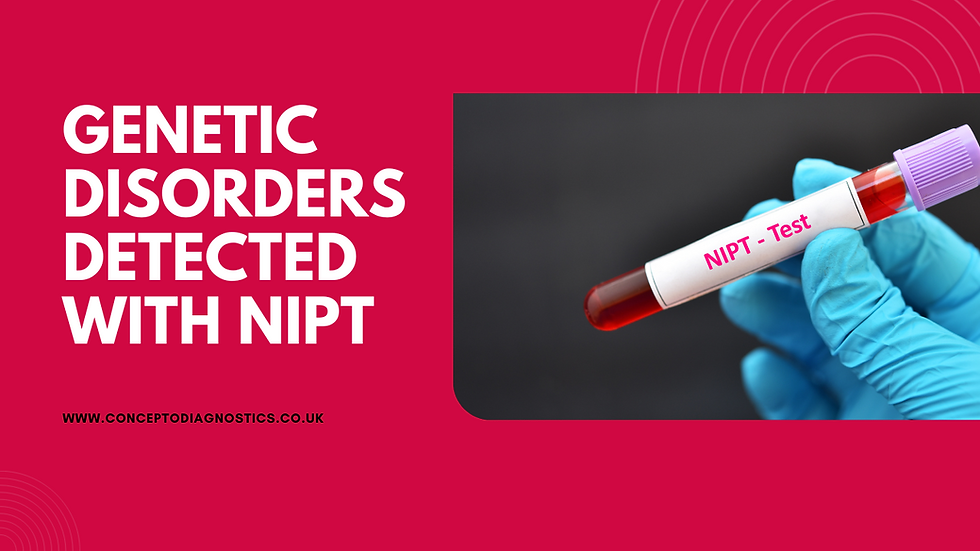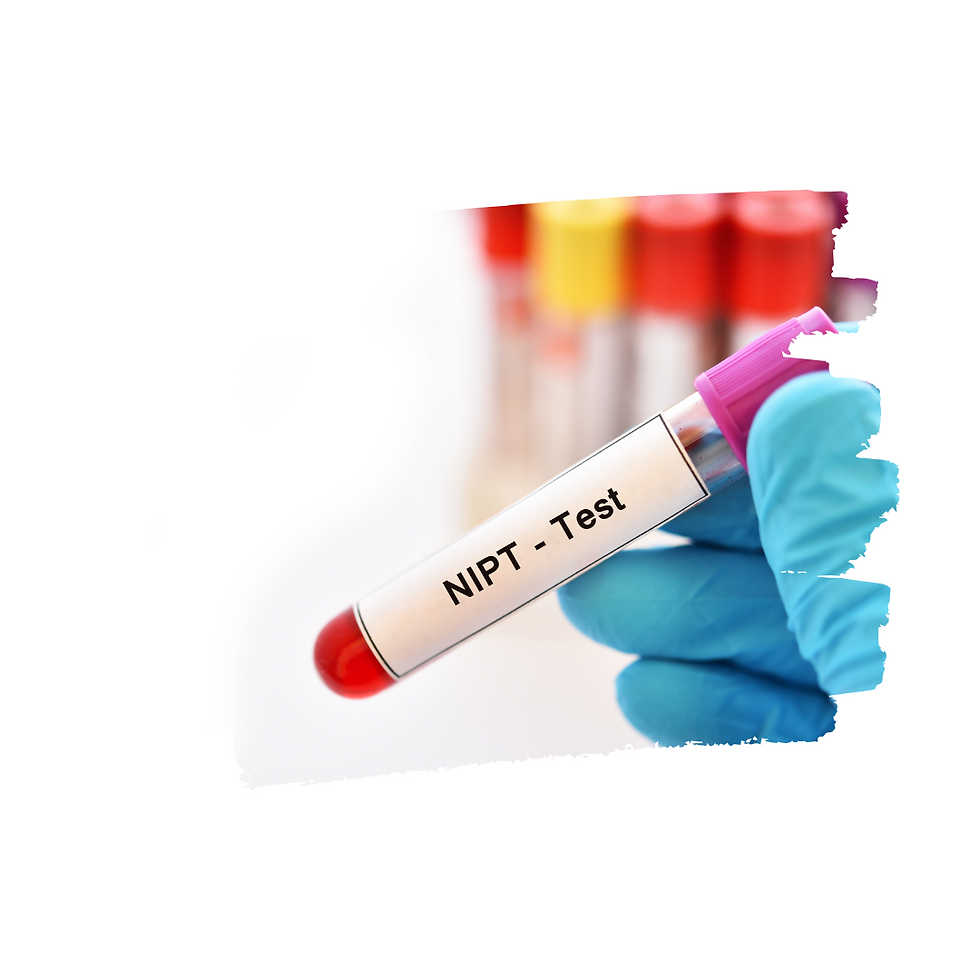What Genetic Disorders Can be Detected with NIPT?
- Concepto Diagnostics
- Dec 7, 2023
- 2 min read

Prenatal care has been transformed by non-invasive prenatal testing (NIPT), which provides pregnant parents with important information about the health of their unborn child without requiring invasive procedures. In this blog, we will discuss a few genetic abnormalities that may be detected by NIPT, emphasizing the value of this non-invasive method for prenatal screening as suggested by the experts at the Best Private Healthcare Provider in the UK.
· Trisomy 21 (Down Syndrome):
Trisomy 21, sometimes referred to as Down syndrome, is one of the most well-known genetic abnormalities that may be identified by NIPT. Due to an additional copy of chromosome 21, people with Down syndrome have developmental delays and unique physical characteristics.
· Trisomy 18 (Edwards syndrome) and Trisomy 13 (Patau syndrome):
The NIPT also does screening for these two conditions, which are characterized by extra copies of chromosomes (18 and 13, respectively). Early identification can help parents and healthcare providers manage the pregnancy effectively since these diseases are linked to many organ abnormalities and severe intellectual deficits.
· Sex chromosomal abnormalities:
Triple X syndrome (XXX), Klinefelter syndrome (XXY), and Turner syndrome (monosomy X) are examples of sex chromosomal abnormalities that can be detected by NIPT. Being aware of these disorders beforehand enables early intervention and supportive treatment. These illnesses can affect both physical and cognitive development.
· Microdeletion Syndromes:
NIPT can detect microdeletion syndromes, in which isolated chromosomal regions are absent, in addition to trisomies. Famous instances are 1p36 deletion syndrome, which causes intellectual difficulties and developmental delays, and 22q11.2 deletion syndrome (also known as DiGeorge syndrome), which is linked to immune system problems and cardiac abnormalities. Early detection of these disorders helps parents and healthcare professionals make the necessary arrangements for assistance and medical care.
· Triploidy:
A fetus with three sets of chromosomes instead of the typical two is known as triploidy, and it is a disorder that may be detected by the NIPT prenatal screening test in the UK. Triploidy frequently results in severe developmental defects since it is incompatible with life. Making early and well-informed decisions regarding the pregnancy is facilitated by the NIPT's ability to detect triploidy.

It's critical to remember that NIPT is a screening test, not a diagnostic one, even if it has excellent accuracy for common chromosomal abnormalities. Furthermore, not all genetic illnesses are screened for by NIPT, and information on structural anomalies or uncommon genetic problems might not be obtained. Before and after the NIPT test in the UK, genetic counseling is advised to fully comprehend the test's limits and potential consequences.



Comments